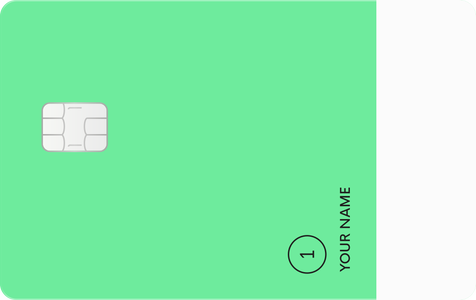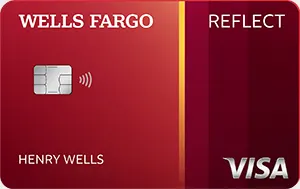Ads
If you want to make money writing online, you need to understand what SEO is and at least how it works. Many clients will ask to write SEO-friendly articles, while others want to learn more about SEO. If you don’t understand it, at least on a basic level, you could lose business. So with that in mind, this post gives a very high level overview of what SEO is, how it affects writers, and some of the most commonly used terms when talking about SEO.
What does SEO mean?
Search engine optimization refers to any action taken to improve a website’s ranking on search engine results pages. For example, if I want this site to appear first when people search for “SEO writer’s guide” on Google, I need to take a few steps to make that happen.
SEO can be divided into two broad categories.
There are two types of SEO:
- On-page SEO
- Off-page SEO
On-page SEO is everything you do on your website to help it rank higher in search results. This means putting keywords in the title and any title tags, putting keywords in page descriptions, using meta tags, and most importantly, writing quality material on the topics you want to rank for.
Off-page SEO, as you can probably guess, SEO is anything you do outside of your own page. This is usually done through link building, which can be done through things like blog posts, forum commenting, and social media marketing. There is a lot of information out there on the subject and many self-proclaimed experts disagree about what works and what doesn’t. As a writer, it’s important to know the basics of these things.
What does SEO have to do with Writing?
If a client asks you to write an SEO article on the keyword “training a bulldog to turn around” and says they want it “optimized to 5%”, you should know what that means . In this case, that means they expect that keyword to be used in the article 5% of the time. If you were to write a 500 word essay for them, you would use this sentence two or three times. Many clients will also ask you to optimize your articles for keywords in the first and last paragraph. This means they want to use that keyword in the first and last paragraph of the article.
Still others will ask you where to put the story or how to use it. But usually it’s enough to be able to talk about SEO and use the right terminology. But the more you know about SEO, the more you can help those who need your help. In fact, if you know enough about the subject, you can start offering SEO services in addition to writing, which will cost you more. But that is not the subject of this article at all.
General SEO Terms:
SEO uses many different words, but this article will discuss only the most important ones. If you see or hear a word or phrase you don’t understand, ask in the comments. I would like to introduce them to you.
- SERP: SERP is an abbreviation for “Search Engine Results Page”.
- Algorithm: A set of rules that a search engine uses to rank items. For example, Google’s search algorithm consists of thousands of different pieces of information that help Google rank the search results for a given term.
- Backlinks: Backlinks are all links to a website or page from other websites. These links may also be referred to as “inbound links”.
- Anchor Text: Anchor text is the clickable text in a link. If I wanted to link to Google and write “Click here to go to Google” and make it clickable, that would be the anchor text.
- Keyword Stuffing: Keyword stuffing is when you use a certain keyword more than usual in an article. For example, some customers request that a certain keyword be used in an article 8% of the time, which is almost never a good idea.
- Headings: These “H tags” can be any number between H1 and H6. They are HTML tags that are commonly used in the way search engines work. Placing key terms in H tags (especially H1 tags) can help with on-page SEO.
- Keywords: Keywords are single words used to find specific topics.
- Long-tail Keywords: Long-tail keywords are keywords that are 2 to 5 words long and tend to have less competition than shorter keywords.
- Keyword Phrase: A keyword phrase is a set of keywords that searchers use to find specific content.
- Link Building: Link building is the process of building links between websites.
Conclusion:
SEO is very important for web writers who want to make money. Introduction to SEO teaches you about on-page and off-page optimization, the importance of quality content and how to build links. Once authors know the basics, they can write SEO articles for clients, make the most of keywords, and even add SEO help to their services.
FAQs:
1. How can knowledge of SEO help a writer?
With an understanding of SEO, writers can fulfill client requests, optimize content for search engines, and potentially provide additional SEO services, increasing earning potential.
2. What is Search Engine Optimization?
SEO stands for search engine optimization and includes activities aimed at improving a website’s position in search engine results pages. It includes on-page (on-site) and off-page (remote) optimization techniques.
3. What common SEO terms should authors know?
Important SEO terms are algorithm (search engine indexing system), anchor text (clickable text in a hyperlink), backlink (incoming link to a website or page), title (HTML tag used for optimization on the page), keywords (single words used in searches), keyword phrases (combinations of keywords used for specific search queries), keyword overuse (overuse of keywords), link building (building links between websites), long tail keywords (phrase-based keywords with less competition), and SERPs (Search engine results pages).
4. How does SEO apply to writers?
Writers need to understand SEO concepts to meet customer demand for optimized content. This includes including keywords with specified densities, strategically placing keywords in paragraphs, and knowing where to publish articles for SEO purposes.







